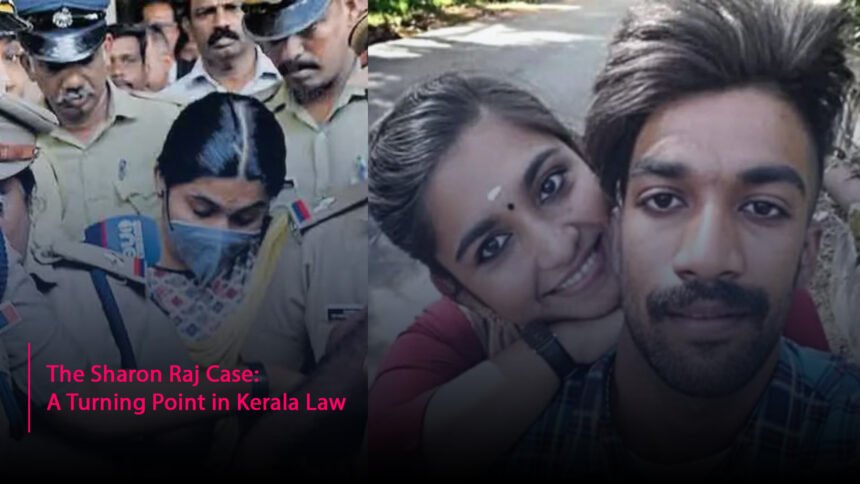The Sharon Raj case has emerged as a pivotal moment in Kerala’s legal landscape, culminating in a landmark judgment that has captured national attention. On January 20, 2025, the Neyyattinkara Sessions Court sentenced S.S. Greeshma to death for the murder of her boyfriend, Sharon Raj, marking a significant chapter in the state’s judicial history.
Background of the Case
The case dates back to October 14, 2022, when Greeshma allegedly poisoned Sharon by mixing pesticide into an ayurvedic drink she provided him at her home. The couple had been in a relationship since 2021, but as Greeshma’s family arranged her marriage to a military officer, tensions escalated. When Sharon refused to end their relationship, Greeshma reportedly devised a plan to eliminate him.
Sharon’s death came after a prolonged struggle; he succumbed to multiple organ failure 11 days after consuming the poisoned drink. His dying declaration to a magistrate was crucial in implicating Greeshma, as he identified her as the source of the harmful concoction.
Court Proceedings and Verdict
The trial began on October 15, 2024, and included testimony from over 95 witnesses. The prosecution presented compelling evidence, including toxicology reports confirming the presence of poison and Greeshma’s attempts to mislead investigators. Despite her defense arguing for leniency based on her young age and academic achievements, the court characterized the crime as “rarest of the rare,” warranting the death penalty.
On January 17, 2025, Greeshma was convicted on multiple charges under the Indian Penal Code (IPC), including murder (Section 302), kidnapping with intent to murder (Section 364), and administering poison (Section 328). Her maternal uncle, Nirmalakumaran Nair, received a three-year sentence for destruction of evidence related to the crime.
Significance of the Ruling
This verdict is particularly notable as it makes Greeshma the youngest woman in Kerala to receive a death sentence. The court’s decision has sparked widespread discussion about justice and accountability in cases involving domestic violence and betrayal. The ruling emphasizes the judiciary’s commitment to addressing heinous crimes and ensuring that perpetrators face severe consequences for their actions.
The court also recommended that victim compensation be awarded to Sharon’s parents under the Victim Compensation Scheme, highlighting an effort to provide some measure of support to those affected by such tragic events.
Public Reaction
The verdict has been met with relief from Sharon’s family and supporters who have expressed gratitude towards the legal system for delivering justice. However, it also raises questions about broader societal issues regarding relationships, consent, and the pressures young individuals face in personal matters.
As discussions around this case continue, it serves as a reminder of the complexities involved in human relationships and the dire consequences that can arise from betrayal and violence. The Sharon Raj case stands as a turning point in Kerala law, reinforcing the importance of judicial action in safeguarding individual rights and upholding justice.










